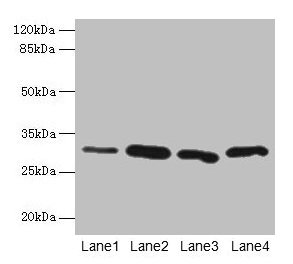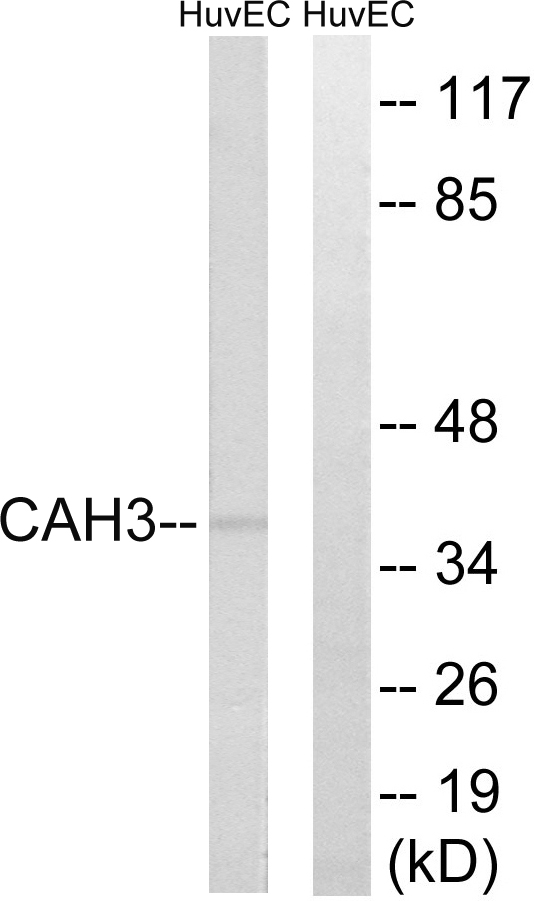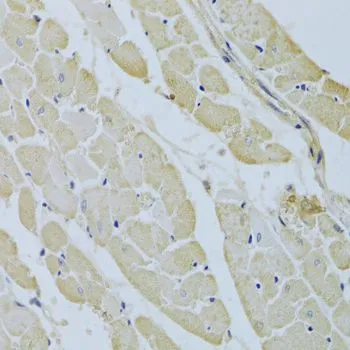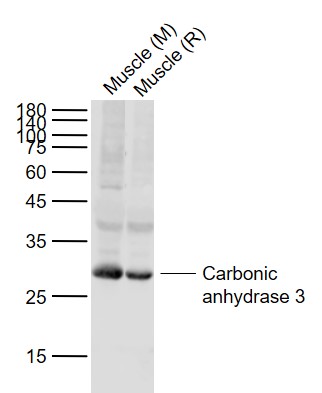
WB analysis of HepG2 cell lysate (35ug/lane) using GTX81343 Carbonic Anhydrase III antibody, N-term.
Carbonic Anhydrase III antibody, N-term
GTX81343
ApplicationsWestern Blot
Product group Antibodies
ReactivityHuman, Mouse
TargetCA3
Overview
- SupplierGeneTex
- Product NameCarbonic Anhydrase III antibody, N-term
- Delivery Days Customer9
- Application Supplier NoteWB: 1:1000. *Optimal dilutions/concentrations should be determined by the researcher.Not tested in other applications.
- ApplicationsWestern Blot
- CertificationResearch Use Only
- ClonalityPolyclonal
- ConjugateUnconjugated
- Gene ID761
- Target nameCA3
- Target descriptioncarbonic anhydrase 3
- Target synonymsCAIII, Car3, carbonic anhydrase 3, CA-III, HEL-S-167mP, carbonate dehydratase III, carbonic anhydrase III, muscle specific, carbonic anhydrase IIII, epididymis secretory sperm binding protein Li 167mP
- HostRabbit
- IsotypeIgG
- Protein IDP07451
- Protein NameCarbonic anhydrase 3
- Scientific DescriptionCarbonic anhydrase III (CAIII) is a member of a multigene family (at least six separate genes are known) that encodes carbonic anhydrase isozymes. These carbonic anhydrases are a class of metalloenzymes that catalyze the reversible hydration of carbon dioxide and are differentially expressed in a number of cell types. The expression of the CA3 gene is strictly tissue specific and present at high levels in skeletal muscle and much lower levels in cardiac and smooth muscle. A proportion of carriers of Duchenne muscle dystrophy have a higher CA3 level than normal. The gene spans 10.3 kb and contains seven exons and six introns. [provided by RefSeq, Oct 2008]
- ReactivityHuman, Mouse
- Storage Instruction-20°C or -80°C,2°C to 8°C
- UNSPSC41116161









